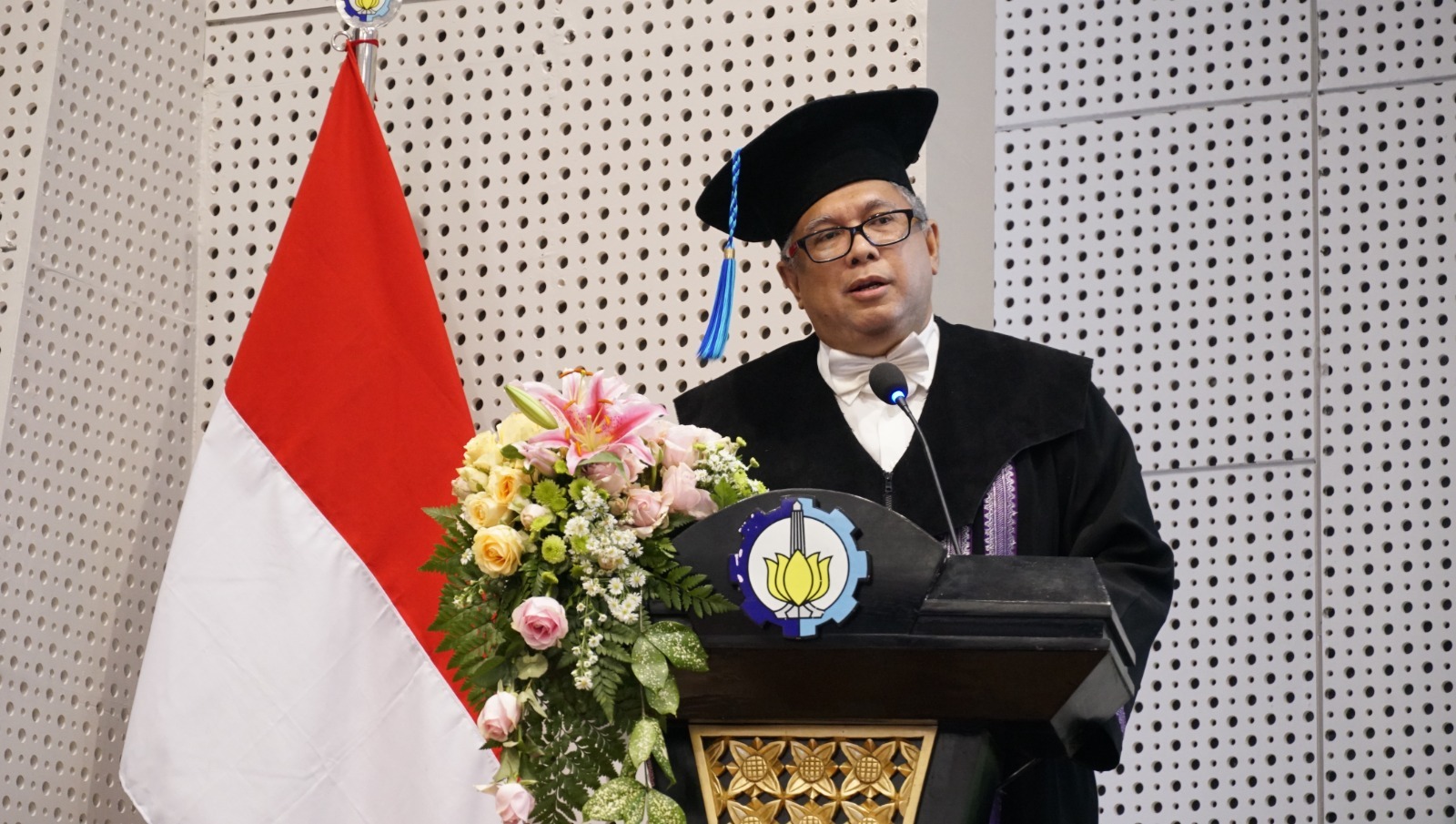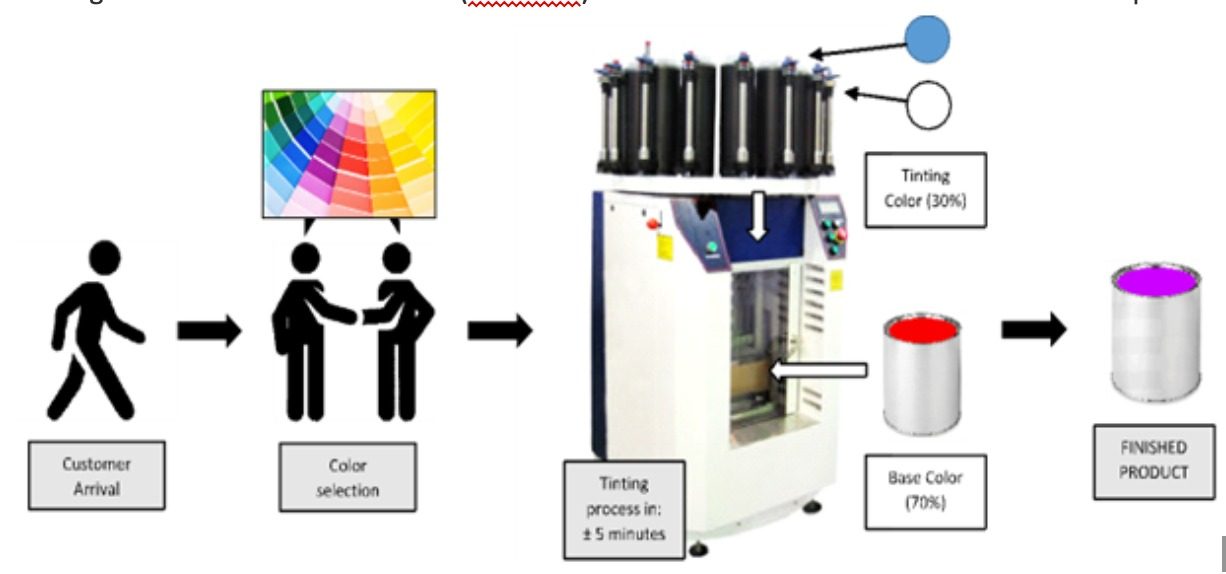ITS Professor Solve Logistics Transportation and Distribution Problems

The 159th ITS professor Prof Dr Eng Ir Ahmad Rusdiansyah MEng is delivering a scientific oration entitled Logistics Transportation and Distribution: model development, algorithms, and computer applications
ITS Campus, ITS News – In this era, transportation and distribution are the two main functions in the logistics system. This prompted the Professor of the Institut Teknologi Sepuluh Nopember (ITS), Prof. Dr. Eng Ir Ahmad Rusdiansyah MEng, to research solutions to transportation and distribution logistics problems in the form of developing models, algorithms, and computers.
Through his inaugural scientific oration, the professor from the Department of Systems and Industrial Engineering said, the scientific oration entitled “Transportation and Distribution: Development of Models, Algorithms, and Computer Applications” aims to answer logistical problems in various modes of transportation. The transportation modes in question include land, sea, air, and multimodal. “Besides that, this scientific oration also answers several problems related to the supply chain,” said the man who is often called Doddy.
He continued that the research methodology used in this scientific oration included six stages. These stages include real problems, system modeling, algorithm development, application prototype development, experiments, and conclusions. From these six stages, three typical research outputs are produced; logistics and supply chain management, operation research, and software engineering.
This Surabaya-born man admits to having made four scientific contributions consisting of the Model Inventory Routing Problem (IRP), Container Loading Problem (CLP), Contemporary Scheduling Problem, and Supply Chain Management. The Model Contribution (IRP) itself is further grouped into two; the Integrated Inventory and Periodic Vehicle Routing Problem with time windows (IPVRPTW) Model and the IRP Model for Contemporary Problems.

The Paint Separator Technology Flow was created using the IPVRPTW Model
IPVRPTW is a development model that aims to determine the optimal frequency and new combinations of visits. Limitations on this model include vehicle capacity, time windows, and route duration. In the research conducted, this model was applied to three problems; cement distribution, paint distribution, and gas distribution in cylinders.
Meanwhile, the ITP model for computer problems itself is a model that aims to solve logistics distribution problems that often occur at this time.
In addition to contributions in the form of an IRP Model, there is also a CLP that contributes to the packing cargo into containers process. CLP aims to maximize the amount of cargo loaded while still considering the limitations, i.e. basic geometry, weight capacity, stacking, and vertical stability. “With this model, the arrangement of goods in cargo can be visualized easily,” he said
.

Visualization of the model for the arrangement of goods in cargo by CLP
The third idea that contributes to world scholarship is the Contemporary Scheduling Problem. In this idea, five schedules are consisting of train schedules, crane operation scheduling, aircrew and pilot scheduling, drone scheduling, and crop rotation scheduling. The five schedules review logistical problems that often occur at this time.
The last contribution initiated in this scientific oration is in the field of supply chain management. In supply chain management, Doddy developed three research models, namely the Joint Economic Lot-Sizing Problem (JELP), and the Predictive Analytics Model. “With these three models, several problems in the supply chain field can be resolved,” said Doddy. (ITS PR)
Reporter: Ahmad Farhan Alghifari
Translator: Hanifah Inayah
Related News
-
ITS Lecturer Introduces Madurese Culture to the International Stage
ITS Campus, ITS News — Continuing to show local wisdom to the world community, this time a lecturer from the Department
July 27, 2023 19:07 -
ITS Researchers Remind TKDN is Crucial for Economic Independence
ITS Campus, ITS News — The Domestic Component Level (TKDN) is the key to restoring the glory of the Indonesian
July 27, 2023 19:07 -
Strengthening Quality Education, ITS Professor Develops Adaptive Technology for Students
ITS Campus, ITS News — Differences in students’ abilities in understanding lessons are often a challenge for teachers in the classroom.
July 27, 2023 19:07 -
ITS Graduates Create Reverse Logistics Model for PET Plastic Waste Recycling
ITS Campus, ITS News — Doctoral graduate from the Department of Industrial and Systems Engineering, Sepuluh Nopember Institute of Technology (ITS) Dr. Yuniar
July 27, 2023 19:07
